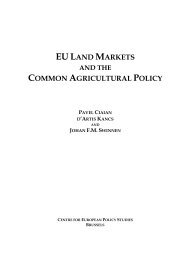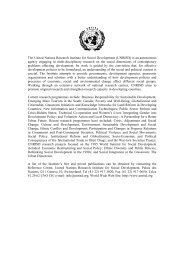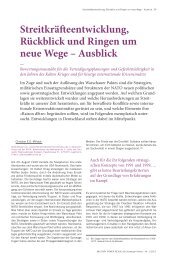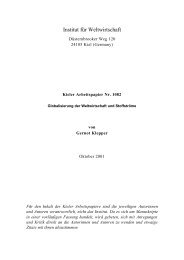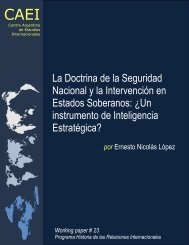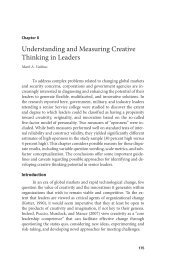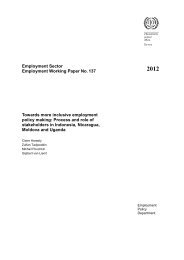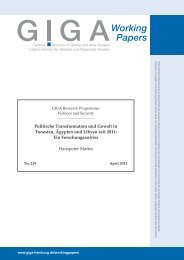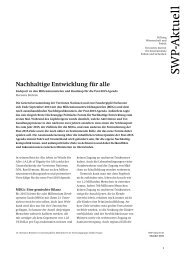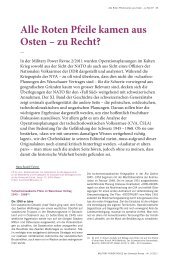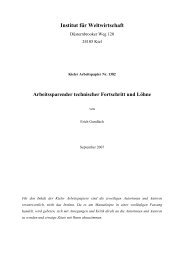Crime and Ammunition Procurement
Crime and Ammunition Procurement
Crime and Ammunition Procurement
Create successful ePaper yourself
Turn your PDF publications into a flip-book with our unique Google optimized e-Paper software.
in cities with more than 100,000 inhabitants, all of which went through rapid<br />
<strong>and</strong> disorganized urbanization processes (ISER, 2005).<br />
Although unaffected by internal or international armed confl ict, Brazil is one<br />
of the most violent places in the world. It is plagued by organized crime, urban<br />
interpersonal violence, <strong>and</strong> police brutality, corruption, <strong>and</strong> abuse of lethal force.<br />
The number of civilians killed by the police in Rio de Janeiro <strong>and</strong> São Paulo<br />
in 2003, for example, was 1195 <strong>and</strong> 868 persons, respectively (Carvalho, 2004,<br />
p. 41).<br />
Brazil is a regional cocaine <strong>and</strong> marijuana consumption centre. It shares long<br />
<strong>and</strong> porous borders with Colombia, a cocaine producing country involved in<br />
a serious <strong>and</strong> protracted internal armed confl ict; Peru <strong>and</strong> Bolivia, two cocaine<br />
producing countries with serious organized crime problems; <strong>and</strong> Paraguay, a<br />
marijuana producing country <strong>and</strong> a trans-shipment platform for all kinds of<br />
goods—including fi rearms—that is plagued by institutional corruption <strong>and</strong> the<br />
lack of a state presence in its border areas (Dreyfus, 2002; Dreyfus et al., 2003).<br />
To this worrying scenario is added the fact (outlined above) that Brazil is the<br />
second largest producer <strong>and</strong> exporter of small arms <strong>and</strong> ammunition in the<br />
western hemisphere. Brazil is the home of the two largest producers of small<br />
arms <strong>and</strong> ammunition in Latin America—Forjas Taurus (Taurus) <strong>and</strong> the Companhia<br />
Brasileira de Cartuchos (CBC). The state-owned Indústria de Material<br />
Bélico do Brasil (IMBEL) produces assault rifl es for the Brazilian armed forces<br />
<strong>and</strong> some police agencies <strong>and</strong> exports most of its production of pistols. Taurus<br />
has an almost complete monopoly position in the domestic civilian <strong>and</strong> police<br />
small arms market. CBC, in turn, monopolizes the national small arms ammunition<br />
market (apart from the market for h<strong>and</strong> grenades) with products ranging<br />
from the .22 long rifl e ammunition to .50-ammunition for heavy machine guns<br />
(12.7 mm). The production of <strong>and</strong> trade in small arms <strong>and</strong> ammunition in<br />
Brazil is monitored by the army. Since 1934 it has enacted regulatory decrees<br />
that heavily protect Brazilian industry by restricting the importation of these<br />
goods. However, in the past two decades, the lack of effi cient regulation of this<br />
lucrative <strong>and</strong> exp<strong>and</strong>ing industry has allowed the growth of an impressive<br />
grey <strong>and</strong> illegal regional market for small arms <strong>and</strong> ammunition. 10<br />
As the studies below show, Brazilian ammunition <strong>and</strong> guns are legally shipped<br />
to neighbouring countries (notably Paraguay in the 1990s) <strong>and</strong> then smuggled<br />
176 Targeting <strong>Ammunition</strong>



